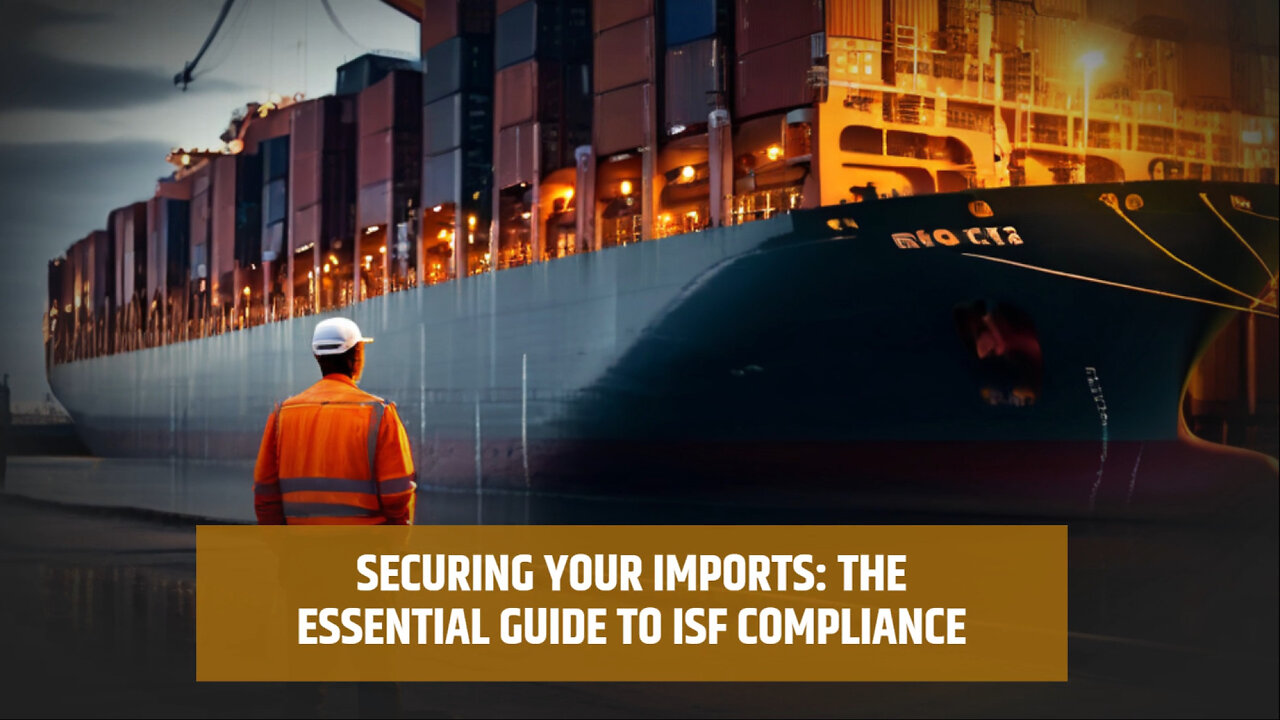Premium Only Content

Securing Your Imports: The Key to Smooth Trade Operations and Compliance
License To Import // 323-578-6432 // file@licensetoimport.com // www.licensetoimport.com
Today's video discusses the Importer Security Filing (ISF), also known as 10+2, which is a mandatory filing requirement enforced by US Customs and Border Protection (CBP). The ISF requires importers to provide specific information about incoming cargo, including bill of lading data, foreign shipper information, and container stuffing details. The primary objective of the ISF is to enhance security measures and improve risk assessment capabilities for customs authorities. By acquiring advance information, CBP can proactively identify high-risk cargo, prevent security threats, and deter illegal activities. The ISF also contributes to streamlining the import process and reducing supply chain delays by allowing customs authorities to perform risk assessments in advance and enable faster cargo clearance. Compliance with the ISF requirements is crucial to avoid penalties and fines, and it is recommended for importers to work closely with customs brokers who have the expertise and knowledge to ensure proper ISF filings. Technology plays a vital role in facilitating the ISF filing process, with most customs brokers providing innovative online platforms that streamline the submission of ISF data and ensure compliance with CBP regulations. Overall, the Importer Security Filing is a critical component of the import process that promotes security, minimizes trade disruptions, and ensures the smooth flow of goods through the supply chain.
#usimportbond #isfcustomsbroker #uscustomsclearing #isfentry
Video Disclaimer Here: This video is solely for education and is not endorsed by any US government agency.
-
 3:51:08
3:51:08
FreshandFit
7 hours agoWe KICKED OFF Girls And FIRED Employees LIVE For THIS...
106K100 -
 2:05:49
2:05:49
Badlands Media
1 day agoDevolution Power Hour Ep. 336
79.9K25 -
 14:11
14:11
DeVory Darkins
12 hours ago $19.72 earnedFetterman SLAMS Democrats during shocking MSNBC Interview
52K63 -
 8:42
8:42
Chris Williamson
1 year agoThe Harsh Reality Of Our Collapsing Birthrate - Jordan Peterson
24.8K15 -
 4:33:31
4:33:31
Alex Zedra
8 hours agoLIVE! Playing Split Ficition!
47K5 -
 2:51:38
2:51:38
TimcastIRL
10 hours agoGovernment SHUTDOWN IMMINENT, Democrats Vow To BLOCK Trump CR w/The Native Patriot | Timcast IRL
178K94 -
 3:38:57
3:38:57
Digital Social Hour
1 day ago $18.11 earnedAndrew Tate EXPOSES the Truth About Legal Battles, Politics & Masculinity | Andrew Tate DSH #1231
57.5K21 -
 2:26:29
2:26:29
Laura Loomer
9 hours agoEP108: Dems Embrace Domestic Terrorism To "Get Trump"
62.3K28 -
 3:01:51
3:01:51
Right Side Broadcasting Network
12 hours agoWATCH: NASA’s SpaceX Crew-10 Launch
117K45 -
 2:06:17
2:06:17
Glenn Greenwald
11 hours agoJudge Orders Hearing on Columbia Student Deportation Case; Is the Ukraine Ceasefire Plan Serious? Trump Attacks Thomas Massie for His Budget Vote | SYSTEM UPDATE #422
129K180